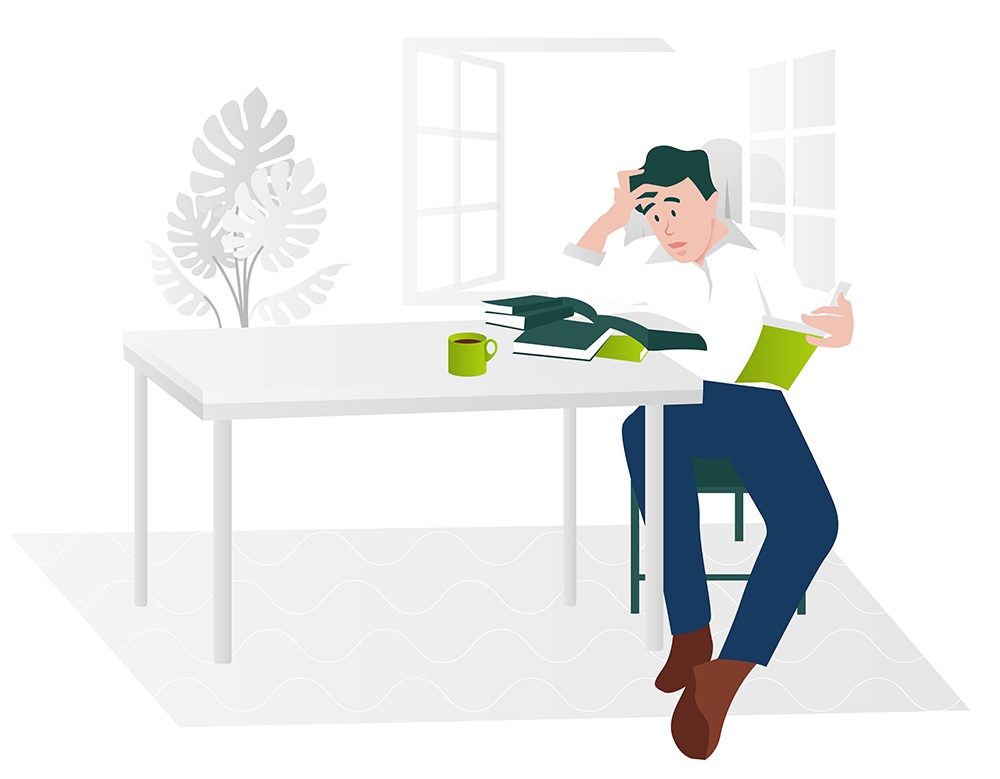In general, many people assume that stress is a purely modern phenomenon, a result of our way of life and the fast-moving modern world. There is a connection, but this statement is not quite correct, because even in earlier times there were stress triggers: for example, the pressure of daily food procurement, threats from disease, war, fear for the future or for the integrity of one’s own family.
What is stress?
The term stress comes from the Latin word “distringere”, which means “to claim” or also “to constrict”. Stress is then defined as a reaction of the body or mind that is triggered by the demands of certain situations. The reactions can be varied and even differ from person to person, but almost always so-called “stress hormones” are involved.
What also differs is the triggering situation and the level of stress a person can cope with. Depending on the degree of health, predisposition, age or well-being, a person may perceive a given situation as being stressful, while another person perceives the exact same situation as being completely unstressful.
Stress can manifest itself physically in different ways:
- Rising blood pressure, because the blood vessels constrict…
- Blood sugar and blood fat levels rise because sugar and fatty acids stored in the body are suddenly released
- Respiratory rate and pulse rate increase
Good stress, bad stress?
Scientific studies and research and numerous surveys suggest that we must distinguish between two types of stress: short-term stress, which can have positive effects, and long-term stress, which in the long run can damage our organism.
We all know short-term stress in the form of adrenaline rushes. Be it in extreme sports or in dicey situations – short-term stress can drive us to peak performance, release undreamt-of energy and after surviving the stress situation, a feeling of satisfaction and sometimes even happiness arises.
However, long-term stress, which is mainly caused by our way of life, is particularly damaging. When we talk about stress today, we mean pressure to meet deadlines and perform, stress at work, conflicts with other people, emotional burdens, burdens due to financial obligations or multiple burdens due to family and job. Our body reacts to this high level of stress by releasing the hormones adrenaline, noradrenaline and cortisol, thus preparing for an assumed peak physical performance. This alone is not a problem. The problems are caused by the fact that there is no immediate relaxation following the stress trigger and we therefore often remain in this state for a long time, even if the original stress trigger no longer exists. This is in contrast to bungee jumping, for example, where after a short, violent stress hormone surge, the immediate relaxation after the jump also causes these hormones to dissipate again.
Persistent stress can develop into physical complaints in the long term: High blood pressure, digestive problems , irritable bowel syndrome or peptic ulcers, muscle tension, palpitations, pain, sleep and concentration disorders. The immune system is also often affected by permanent stress.
Reduce stress quickly – but how?
- Through exercise
Stress can be relieved, for example, through sports such as jogging, walking, swimming, dancing, tennis or squash. But also those who do not like sports can relax by exercising, walking, gardening or by riding a bike in nature. Coping with stress through sport has the great advantage that stress hormones are quickly broken down.
- Through conscious breathing
Take a deep breath in and out of your stomach. The diaphragm is stretched and the activation of this muscle immediately reduces stress. Numerous smartphone apps are recommended as aids, which give instructions for conscious breathing.
- By singing
Singing loudly has a similar effect. Because the diaphragm is also activated here. If you sing with others , for example in a choir, the singers’ breathing synchronises – with calming effects on the body.
- Through laughter
The brain region responsible for stress is the hippocampus. But the hippocampus also controls our laughter. This releases endorphins in the brain, and as a result we are much more balanced. In the meantime, even therapeutic laughter has found its way into courses on stress management.
Chewing gum, hugging or playing and reading are distractions that have similar effects.






